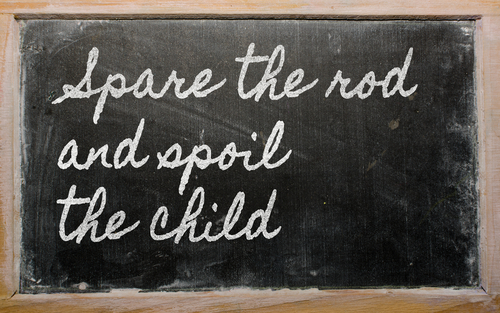Little kids can be so funny, and so incredibly cute. Their clowning can be a healing balm to a weary soul. However, many of those cute kid antics at two and three years old can become problematic later on. The sad puppy dog eyes have a tendency to cause adults to give in to whatever whims the child has at the moment. This manipulation can have serious consequences later on. Parents don’t plan to spoil their kids, but it happens as a result of allowing of certain behaviors to continue well after the “cute” stage has passed. Discipline and setting boundaries may cause temper tantrums and temporary ill feelings on the part of the child, but the negative behavior is only temporary. It is much better to nip misbehavior in the bud than to let it snowball into a major problem. If you need a reason to put an end to some of those antics, choose one of these.
- You’re Hurting Your Child in the Long Run – Everyone knows that life is not fair. There are the “haves” and the “have not’s.” It’s always been that way, and it always will be that way. Spoiling a child sets her up to get hurt later on when she realizes that in some cases, she will be one of the “have not’s.” If she has been given everything up to that point, she will be ill-prepared to handle the disappointment.
- Finding a Sitter Will Often be a Struggle – Babysitters talk, and they compare notes. If your child is known to be spoiled and difficult to handle, good luck finding a sitter after word spreads. It won’t take long to exhaust your short list of available candidates. With the shortage of well qualified, available sitters, why would any of them settle for taking on a spoiled child when there are well behaved, easy to handle kids who also need their services?
- You Want to Maintain a Peaceful Home Environment – The simple truth is spoiled children make a lot of noise. Whether it is throwing tantrums, yelling, nagging or just constantly insisting on being served, a spoiled child’s voice is always in your ears.
- Your Child Needs Boundaries – Children like to know where their limits are in terms of acceptable behavior. Setting boundaries gives them a framework within which they can work. They will always test those boundaries to see how rigid they are, though. Parents will find that some boundaries will be more flexible than others. For example crossing the street alone is forbidden. Eating candy before dinner may be more negotiable, depending on the circumstances. Either way, your child needs those boundaries to be in place, and removing them only serves to spoil her.
- Avoiding Manipulative Behavior – When a grandparent looks at you and says, “My, he has you well trained,” you can pretty well assured that your child is well on the way to being spoiled. According to child development professor, Dr. David Elkind of Tufts University a 5 to 6 year old who throws temper tantrums is being manipulative. Toddlers will throw tantrums to deal with their feelings, but for older kids that behavior is inappropriate and is used as a means of engineering the outcome they want.
- Your Child Needs to Learn to Be Independent – A child who needs his mother or father constantly, who won’t go to bed alone or allow anyone else to keep him is headed for problems. Kids need to learn how to socialize with others and how to be okay when they’re under the care of other responsible people.
- To Help Your Child Learn Self-Discipline – Society is full of over-indulgent people who are ruining their lives and the lives of others by their lack of self-discipline. This is a skill learned easily enough in childhood, but it becomes a difficult task to learn later in life. Teaching your child to be self-disciplined well help her develop into an adult that can handle the ups and downs of life without turning to self-destructive behaviors.
- Teaching Your Child to Make Good Choices – If you are always making choices for your child, when will she learn to make good choices for herself? Indeed, when she is very small, you make decisions for her, but as she grows older you can teach her how to make wise decisions by allowing her to choose for herself and explaining the consequences of her choices.
- Instilling a Sense of Self-Confidence – A child whose parents always run to the rescue for every little thing learns to be needy and will most likely grow up feeling the need to be taken care of in all aspects. On the other hand, a child that grows up learning to do things on his own, with reasonable guidance and assistance is more likely to have self-confidence.
- To Encourage Contribution to the Household – If you don’t want to have a bunch of long-legged teenagers sitting around the house, waiting for you to clean up after them and attend to their needs, then you need to start early. While your kids are still small, give them simple chores that are age-appropriate. By doing this you are teaching them responsibility, and that they have roles to play in their community.
Spoiling your child is really putting him at a disadvantage which may last a lifetime. Teaching about responsibility, self-control, self-discipline and teamwork will also have long term consequences for your child’s future. Keep in mind the possibility your choice will also directly or indirectly affect your future as well. You may not want Junior still living in your basement and handing his laundry off to you when he is fifty years old.
